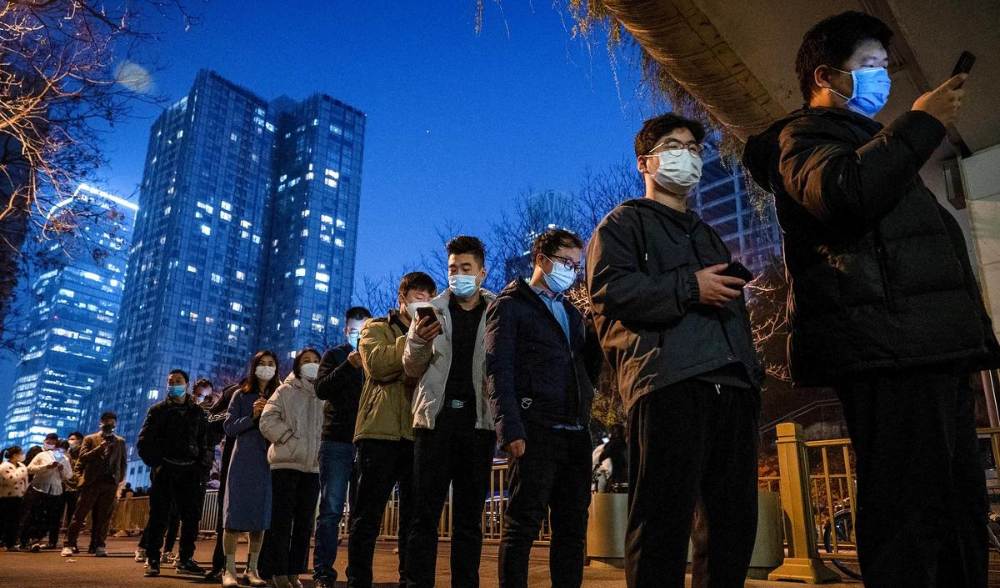HUNTER MYERS WRITES – With its severe Covid control administration, did Beijing blunder – or show the way toward a viable epidemic control option for the future?
China’s experience with Covid Zero policy, and its subsequent, rather sudden lifting, provides valuable insights for other countries. It shows the importance of a balanced approach, taking into account both economic recovery efforts and public health concerns. But the more usual strategy of reopening that is more cautious (a phased reopening, widespread testing, contact tracing and vaccinations) can also help lessen the spread of the virus while allowing for a gradual return to normalcy.
China’s experience and approach to the Covid Zero policy provides important negative lessons for other countries as well. Although the policy may have helped control the spread of the virus, its unintended consequences, such as disruptions to the economy, are difficult to ignore. And the recent abrupt lifting of the policy has left healthcare facilities substantially burdened. Given the low vaccination rate of the population, this sudden shift increased the risk of Covid transmission.
Moving onwards, a cautious and phased reopening strategy that balances efforts of economic recovery with public health concerns is essential for a successful transition in China, after Covid-Zero.
Recall that back in November 2019, the world was suddenly struck by the novel coronavirus. A dominant strain began its spread from Wuhan, China to the rest of the world. The Chinese government, which operates under the leadership of the Chinese Communist Party (CCP), implemented a strict COVID policy named “Zero Covid“. This policy looked to eliminate the virus altogether, by imposing stringent restrictions on the movement of citizens and enforcing frequent, mandatory testing. While this approach helped to control the spread of the virus to some extent, it has certainly had unintended consequences which have disrupted industries, causing economic hardship for the Chinese people.
This lifting caught many citizens by surprise, and the Chinese government, at the time, was seen as unprepared to shift positions so quickly. The authorities had to then quickly adapt by implementing policies intended to protect citizens from Covid while also addressing the problem of social chaos. This was accomplished by promoting social distancing, vaccines, and mask-wearing. But the vaccine rollout and the percentage of the population vaccinated was much lower than that of other developed countries. Chinese citizens stated that “they don’t really trust the quality of foreign-made vaccines.”
As the world continues grappling with the fallout of the pandemic, China’s reopening after Covid Zero raised important questions about how to best balance economic recovery with public health concerns. While Zero Covid helped control the spread of the virus, subsequent reopening had major unintended consequences. Were China’s actions and reactions right? Or wrong? The answer may be both.

